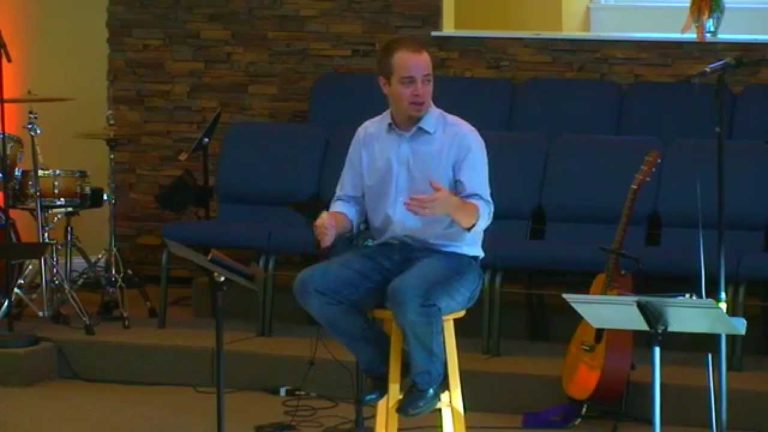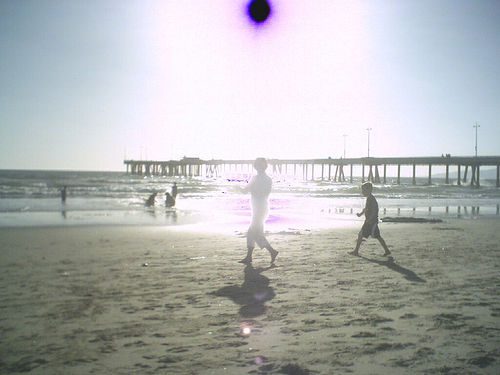 Tim Schmoyer posted “Why I’d rather combine Jr. And Sr. High at Youth Group,” and outlined his reasoning. I want to respond with the opposite position.
Tim Schmoyer posted “Why I’d rather combine Jr. And Sr. High at Youth Group,” and outlined his reasoning. I want to respond with the opposite position.
1.) High school kids can leave a huge impact on jr. highers.
I don’t discount the fact that high schoolers can have a great influence on middle schoolers. Over the Christmas break, a 7th grader walked up to a college freshman who had just returned and said, “Hey Patrick!” They had a brief conversation, and then Brian said, “Well, I just wanted to come say hi,” and walked away. It was obvious that there existed a deep connection of respect between the two of them.
But in the weekly ministries with youth, I would rather separate these two groups.
There is a time and a place for mentoring to take place — but there is also a need for both of these age groups to act their age. They need teaching that is focused to their place in life. They need an environment that will allow them to worship God as kids, which is really what they are — without the burden of always being looked up to. While the rest of the world is speeding up their socialization to adulthood, our youth ministries should be places where they can experience childlike faith, a refuge from the storm of life.
I see every week the middle schoolers acting like they have seen the high schoolers act. We don’t have a bad group of high schoolers — but if they are always “on” as mentors, then they won’t be as effective as leaders.
There are times (certain retreats, certain fellowship “events,” certain mission opportunities) that should be made available for these types of mentoring relationships to occur. But in the week-to-week ministry of the church, I believe that when you can, Jr. and Sr. High should be separated.
Tim invited responses, but asked to “get past all the general reasons like, ‘They’re at different places in life.’” I don’t think you can get past that. The developmental psychology indicates differently. For the sake of the argument, since all of the adults in the church can have such a big impact on our youth, should our Bible studies be combined? This is the Inclusive Congregational approach in Four Views of Youth Ministry.
2.) It models what the body of Christ is all about
3.) It shapes a healthier view of church for their adult years
Jesus’ disciples were not in an open group for all people. Sure, Jesus wanted the Church to be open to all. And in the weekly worship of the church (all ages — toddler to senior adults), this happens. In the weekly fellowship of the church this happens. It doesn’t have to happen all the time: there are times for large groups and there are times for small groups. We need times and places where groups are broken off for small group dynamics, deeper questions and quality conversations.
I think it is the responsibility of the church as a whole to help form our youths’ views of the church for their adult years. This is part of the conversation and debate in Four Views of Youth Ministry. Youth ministry is but one part of the church, and the church should honor and respect that as they include the youth in other aspects of ministry across generational gaps.
 Digging deeper
Digging deeper
Let’s go back to the “five purposes of youth ministry” that Doug Fields outlined in Purpose-Driven Youth Ministry: worship, fellowship, discipleship, outreach and mission/justice. In worship and mission/justice, I don’t think boundaries should/need to exist about what is “together” and what is “separate.” If the scheduling of your youth ministry necessitates youth worship opportunities being separate, so be it. I talked to a youth pastor who combines Jr/Sr High for worship, separates for discussion and reconvenes for the message. But my preference is that for the vast majority of youth ministry events and opportunities, middle school and high school are separate.
What this really boils down to is that there is a time, a place and a season for both “sides” of this argument. It’s both/and, and we cannot simply place our ministry into a box. When we start thinking inside a box, we lose sight of the greatness of our God.
And countering Tim, just for the record, my youth ministry is combined into Jr. and Sr. High — but that may change soon as the church moves through this transition.


